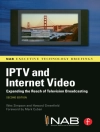Explores the breadth and versatility of Human Systems Engineering (HSE) practices and illustrates its value in system development
A Framework of Human Systems Engineering: Applications and Case Studies offers a guide to identifying and improving methods to integrate human concerns into the conceptualization and design of systems. With contributions from a panel of noted experts on the topic, the book presents a series of Human Systems Engineering (HSE) applications on a wide range of topics: interface design, training requirements, personnel capabilities and limitations, and human task allocation.
Each of the book’s chapters present a case study of the application of HSE from different dimensions of socio-technical systems. The examples are organized using a socio-technical system framework to reference the applications across multiple system types and domains. These case studies are based in real-world examples and highlight the value of applying HSE to the broader engineering community. This important book:
* Includes a proven framework with case studies to different dimensions of practice, including domain, system type, and system maturity
* Contains the needed tools and methods in order to integrate human concerns within systems
* Encourages the use of Human Systems Engineering throughout the design process
* Provides examples that cross traditional system engineering sectors and identifies a diverse set of human engineering practices
Written for systems engineers, human factors engineers, and HSI practitioners, A Framework of Human Systems Engineering: Applications and Case Studies provides the information needed for the better integration of human and systems and early resolution of issues based on human constraints and limitations.
Table of Content
Editor Bios
Author Short Bios
Contributors list
Foreword
Preface
Section 1: Socio – Technical System Types
1. Introduction to the Human System Engineering Framework
Holly A. H. Handley
2. Human Interface Considerations for Situational Awareness
Christian G.W. Schnedler and Michael Joy
3. Utilizing Artificial Intelligence to Make Systems Engineering More Human
Philip Barry and Steve Doskey
4. Life-Learning of Smart Autonomous Systems for Meaningful Human-Autonomy Teaming
Kate J. Yaxley, Keith F. Joiner, Jean Bogais and Hussein A. Abbass
Section 2: Domain Deep Dives
5. Modeling the Evolution of Organizational Systems for the Digital Transformation of Heavy Rail
Grace Kennedy, William Scott, Farid Shirvani and Peter Campbell
6. Human System Integration in the Space Exploration Systems Engineering Lifecycle
George Salazar and Maria Natalia Russi-Vigoya
7. Aerospace Human System Integration – Evolution over the Last 40 Years
Guy André Boy
Section 3: Focus on Training and Skill Sets
8. Building a Socio-Cognitive Evaluation Framework to Develop Enhanced Aviation Training Concepts for Gen Y and Gen Z Pilot Trainees
Alliya Anderson, Samuel Feng, Fabrizio Interlandi, Michael Melkonian, Vladimir Parezanovic, Mary-Lynn Woolsey, Claudine Habak and Nelson King
9. Improving Enterprise Resilience by Evaluating Training System Architecture: Method Selection for Australian Defence
Victoria Jnitova, Mahmoud Efatmaneshnik, Keith Joiner and Elizabeth Chang
10. Integrating New Technology into the Complex System of Air Combat Training
Sarah M. Sherwood, Kelly J. Neville, Angus L. M. Thom Mc Lean, III, Melissa Walwanis and Amy Bolton
Section 4: Considering Human Characteristics
11. Engineering a Trustworthy Private Blockchain for Operational Risk Management – A Rapid Human Data Engineering Approach based on Human System Engineering
Marius Becherer, Michael Zipperle, Stuart Green, Florian Gottwalt, T. Bui-Nguyen and Elizabeth Chang
12. Lights Properties and Power in Facilitating Organizational Change
Pravir Malik
Section 5: From the Field
13. Observations of Real-Time Control Room Simulation
Hugh David with an editor introduction by Holly Handley
14. A Research Agenda for Human Systems Engineering
Andreas Tolk
Index Terms
About the author
HOLLY A. H. HANDLEY, PHD, is an Associate Professor in the Engineering Management and System Department at Old Dominion University.
ANDREAS TOLK, PHD, is Senior Computer Science Principal and Modeling, Simulation, Experimentation, and Analytics Division Staff member at The MITRE Corporation.












